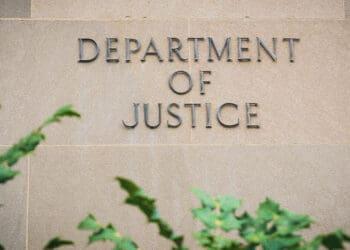Some apparent deficiencies have come to light in Japan’s prosecution of foreign bribery, and the OECD is urging the country to take action to close loopholes and stiffen penalties. Clifford Chance’s Wendy Wysong, Tess Forge and Catherine Ho weigh in.
with co-authors Tess Forge and Catherine Ho
In June 2019, the Organization for Economic Cooperation and Development (OECD) Working Group on Bribery in International Transactions criticized Japan’s efforts to combat bribery of foreign public officials (Report). In short, the OECD “remains concerned” that Japan is not doing enough to crack down on foreign bribery. The OECD identified a “major loophole” and “legislative defects” in Japan’s Unfair Competition Prevention Law (UCPL), calling on Japan to take “urgent” action. Japan will be in the spotlight for the 2020 Olympics, and this Report may be just the encouragement it needs to take a tougher stance on foreign bribery.
The Report
The OECD last evaluated Japan in December 2013. To prepare this updated Report, the OECD conducted on-site visits in Japan and invited members of government ministries, agencies, law enforcement, the judiciary, private enterprises, business organizations, auditing associations, civil society and academic and legal professionals, including Peter Coney and Tess Forge of Clifford Chance to participate in panel discussions.
The Root of the Concerns
In this Report, the OECD expressed concerns stemming from Japan’s “alarmingly low” number of corporate prosecutions for bribery of foreign public officials. The OECD emphasized that Japan’s prosecution rate is not commensurate with its size and the export-oriented nature of its economy, as well as the high-risk regions and sectors in which Japanese companies operate. Only two Japanese companies have been convicted for bribery of foreign public officials in the past 20 years.
Some Positive Achievements
The OECD did commend Japan for its implementation of the Convention in certain areas. For example, the OECD noted that the 2017 amendments criminalized the laundering of the proceeds of foreign bribery and allowed their confiscation. Additionally, the OECD praised the 2018 introduction of a procedure that rewards a suspect or defendant who provides information regarding another person’s misconduct, by allowing dismissal or reduction in charges or penalties.
Legislative Defects
The “major loophole” identified by the OECD in the UCPL was Japan’s application of “nationality jurisdiction” for corporate liability of foreign bribery. Unless a Japanese national committed or conspired to commit a bribery offence, a corporate cannot be held liable for bribing a foreign public official abroad. At least two foreign bribery investigations have been dropped due to the fact that the individuals who allegedly paid the bribes for the benefit of the Japanese companies were not Japanese nationals. The OECD therefore encouraged Japan to “urgently” review and broaden its legislative framework.
The OECD was also concerned that Japan’s five-year statute of limitations for foreign bribery contributed to the limited number of corporate prosecutions. Half of the foreign bribery allegations failed to lead to an investigation and multiple foreign bribery investigations or proceedings against Japanese companies were discontinued as time-barred. To ensure that Japanese companies do not escape punishment for foreign bribery offences based solely on the expiration of the statutory period, the OECD urges Japan to allow for its extension.
The OECD also noted another potential “major loophole” in the Guidelines for the Prevention of Bribery of Foreign Public Officials, published in 2004 and subsequently revised by the Ministry of Economy, Trade and Industry in 2017 (the METI Guidelines). The METI Guidelines provide that paying a bribe to avoid “danger to one’s own life or body” is a justification to bribery, but then, they go further and suggest that even “economic harm to a company” could justify bribery. The OECD considered this exception to be simply incompatible with the Convention and encouraged Japan to review and update the METI Guidelines.
Inadequate Penalties
The OECD found that the current penalties imposed against corporations have been so low that “foreign bribery may still constitute an attractive investment for Japanese companies operating abroad.” The OECD called on Japan to substantially increase its statutory maximum fine, impose both prison sentences and monetary sanctions for foreign bribery offences and provide guidelines and training to law enforcement officials to ensure sanctions imposed in practice are effective in combating foreign bribery.
Poor Detection, Investigation and Prosecution
Japan has a limited ability to detect foreign bribery. The OECD was particularly “concerned” that Japan has not detected any foreign bribery cases through its AML system. Specifically, they also observed that legal professionals, auditors, accountants, export credit agencies and other public agencies “have not yet contributed” to Japan’s anti-bribery efforts. To enhance Japan’s capacity to detect and report foreign bribery offences, the OECD recommended that Japan bring legal professionals and accountants into the AML framework by imposing mandatory reporting requirements for suspected money laundering predicated on foreign bribery.
Further, the OECD strongly recommended that Japan’s law enforcement authorities adopt a more proactive approach in combating foreign bribery. In particular, Japan should “make better use of the resources… in a sustained fashion” and ensure that its public prosecutors’ offices not only develop specialization in prosecuting foreign bribery, but also better utilize police networks and resources through routine cooperation at the early stage of foreign bribery investigations.
The Road Ahead
Following the 2013 report, Japan took steps to fully or partially implement the majority of the OECD’s recommendations. We therefore expect that the latest Report will spur Japan to take action, especially given that Japan is in the spotlight as a result of the upcoming Olympics and scrutiny by other intergovernmental organizations, including the Financial Action Task Force and the Asia/Pacific Group on Money Laundering.
The Report highlights that “Japanese businesses were more concerned about exposure to U.S. or U.K. foreign bribery laws than the domestic foreign bribery offence.” However, this could soon change if Japan takes heed of the OECD’s recommendations and adopts a tougher stance on bribery of foreign public officials.
Accordingly, it would be wise for Japanese companies (even those that are not subject to the U.S. Foreign Corrupt Practices Act or the U.K. Bribery Act) to revisit their anti-bribery compliance programs, especially where international business transactions are concerned, and keep abreast of the developments in Japan’s efforts to combat foreign bribery.



 Wendy L. Wysong is a partner at
Wendy L. Wysong is a partner at 








